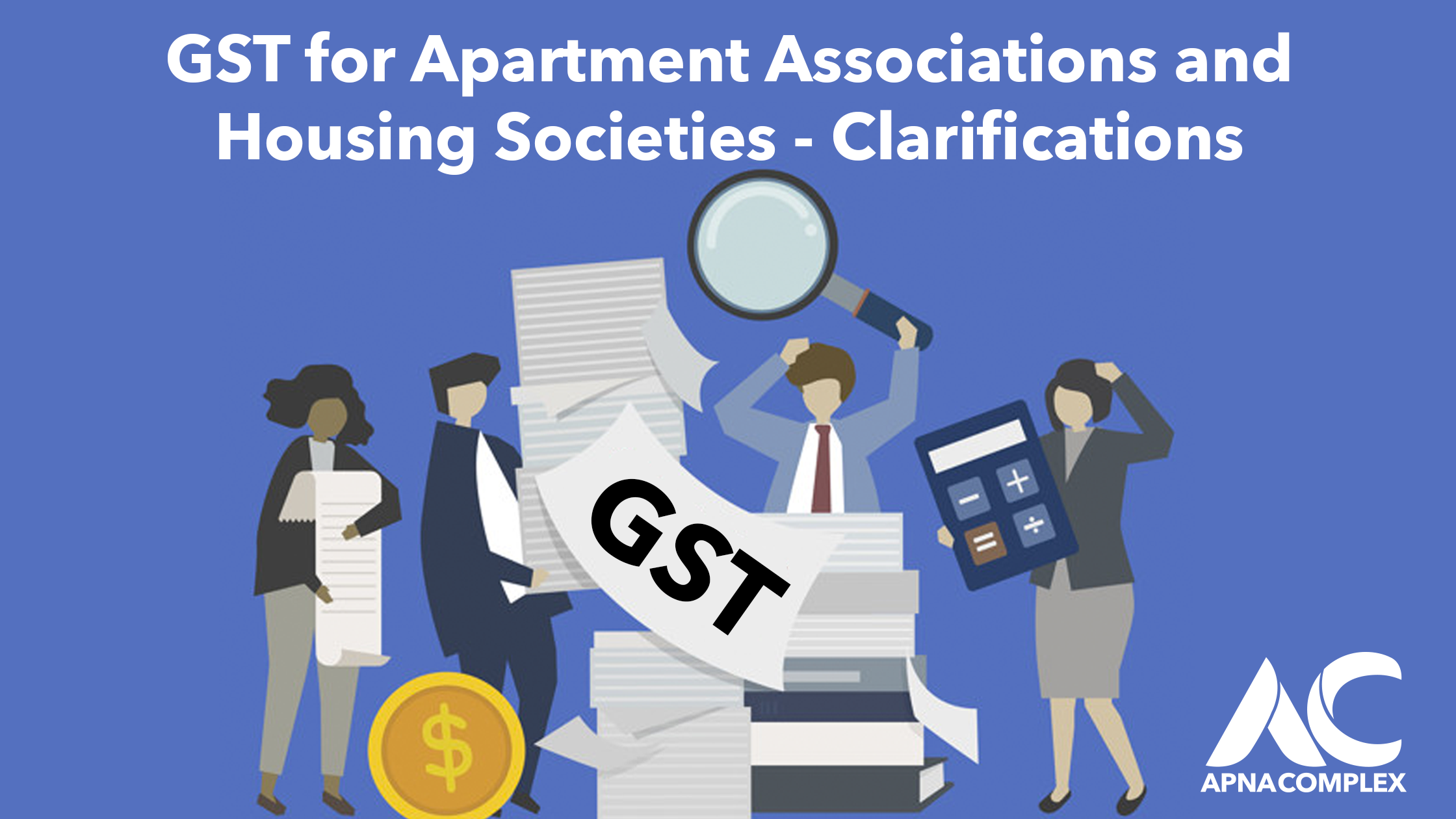28
Jul, 2019
GST for Apartment Associations and Housing Societies – Clarifications
Apartment, Apartment Accounting Software, Apartment Association Acts, Apartment Management, Apartment Management Software, Apartment Owners Association, Bangalore, Chennai, Financial, GST, Housing Society Software, Hyderabad, Legal, Maintenance Charges, Pune, Society Accounting Software, Society Billing Software
17
Oct, 2018
Pitfalls of Cash Transactions in an Apartment Complex
Apartment, Apartment Accounting Software, Apartment Management, Apartment Management Software, Cashless society, Maintenance Charges, Society Accounting Software, Society Billing Software, Software #apartmentliving, Apartment, apartments, Cash Payments, cashless society, Collection Gateway, Pitfalls
5
May, 2017
GST on Co-operative Housing Societies Maintenance Dues / Common Area Expenses
GST, Housing Society, Maintenance Charges, Real Estate, Society Accounting Software, Society Billing Software GST, GST on Apartment Owners Association, GST on CHS, GST on Co-operative Housing Societies, GST on Common Area Maintenance Charges, GST on Corpus Fund, GST on Maintenance Dues, GST on RWA
31
Dec, 2016



